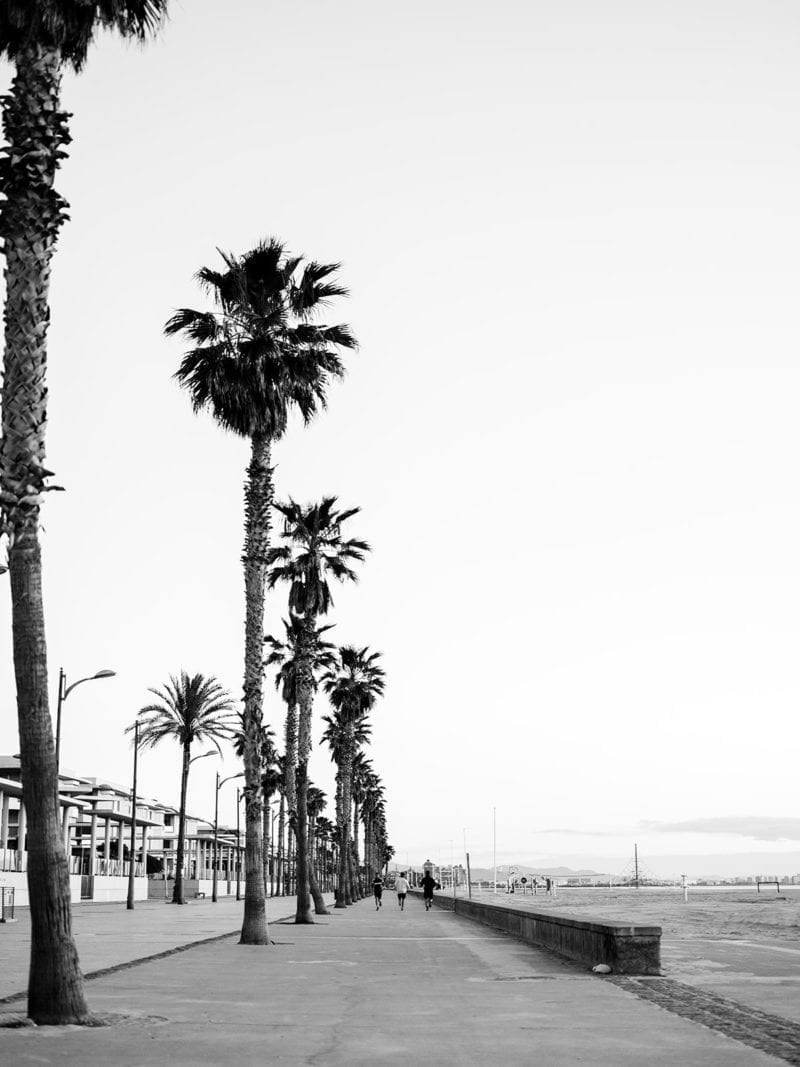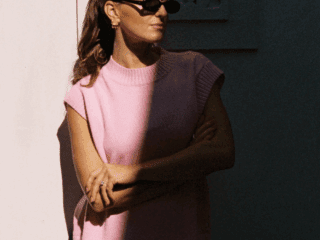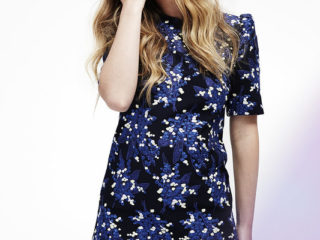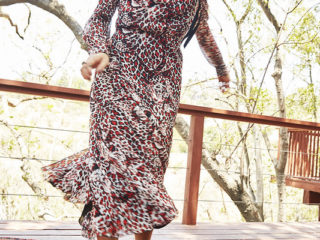We pulled off the highway at a bleak rest stop just east of the Oklahoma/Texas line. We’d been trying to outrun my miscarriage for two weeks since my spotting began.
Three days earlier, we saw our baby alive in an ultrasound and heard the humming of her humanity and might with a steady heartbeat of 164 BPM. I was totally overcome to see her that day—literally woven into the very fiber of my being and also into every second of my life moving forward. I could just see snapshots of life with her unfolding in my mind.
Me and you, sister. Me and You.
Me and you, sister. Me and You.
She was perfect, but she was also small—very small. Given the spotting, I was concerned so I self-consciously broached it with my doctor. She dismissively shrugged and without looking up from her clipboard told me I must have miscalculated my dates.
After our appointment, excitement and nerves bounced between us as we sipped on red velvet milkshakes and shared sweet potato fries—my choice. My husband with the reassuring and beaming confidence of a man who just saw his first child and me with the mental calendar counting back the days since we had seen the double lines on our pregnancy test, gripped each other tightly on the bathroom floor and then typed into Google, “How much do babies cost?”
I could not, no matter how hard I tried, attribute “miscalculated dates” as a reason for her size. It just didn’t work. A call back to my doctor with concern was met with a, “Huh. Well, we’ll just wait and see, won’t we?”
Other things I overheard in the days between went like this:
It’s fine.
Don’t stress. It’s bad for the baby.
It’s fine.
Does your doctor seem concerned? …Then, don’t worry so much.
In my heart, I knew it was intended as well meaning, but it was all internalized as: Don’t trust your instincts. Stuff that emotion. Don’t advocate for your needs. If something happens, now it will be your fault.
But what was missing and what I needed was:
I see you.
This lack of clarity is scary.
Don’t dismiss your feelings.
I see you.
I’m going to sit with you in the unease and uncertainty of this moment.
But what was missing and what I needed was: I see you. This lack of clarity is scary. Don’t dismiss your feelings.
Relatives hugged our necks and told us what great parents we were about to be as we gathered out of state to celebrate a birthday. I smiled politely and tried my best to receive it in tandem with the awareness that, upon last check, my spotting had escalated to something that seemed more severe than “spotting.” I felt fear ringing in every part of my body.
“How are you feeling?”
“When are you due?
“Look at your little bump!”
All these things still rattled around in my mind the next morning as I tried to steady my attention, my emotions and my breath enough to hear the shaming voice of a male, on-call doctor tell me over the phone to not be so hysterical, this is natural, it’s been happening since the time of Eve.
I was pale. I was weak. I felt like an observer to my own body now apparently doing the most basic and primal thing ever. For the first time, I was forced to consider the unthinkable, that the life before me was going to be without her in it.
I was pale. I was weak. I felt like an observer to my own body.
No one explained to me what to physically expect with a miscarriage, and to their credit, I was too heartbroken and stunned to even begin to reckon with it. In crisis, I reasoned that if I’d spotted for two weeks, surely I could make it the five hours home to endure this process and our suffering privately. However, the pain in my lower abdomen—what I’d one day learn felt a lot like labor because it is labor—became too intolerable. Sitting in the car and the loss of our baby seemed to no longer be negotiable.
There are details about what happened next that I still can’t quite retrieve or piece together. I do, however, vividly remember feeling like I could see every flicker of the fluorescent lighting in slow motion of that awful rest stop bathroom there at Exit 7. I remember looking at myself in the mirror, numb and shell like, as I shut the stall door. In an unexplainable way, I understood I’d never see that girl who looked back at me again.
All alone in the single stall of a gas station bathroom, in the middle of nowhere Oklahoma and at 10 weeks pregnant, my world went deafly silent.
The trauma of losing a child at any stage of their life is shattering. I need you to hear this as if I’m looking you squarely in the eye and squeezing your hand: If you lost a child in your womb or in your arms, you are seen. I am so sorry we are in this club of women together. There is no hierarchy of grief so don’t bother to qualify it, compare it or diminish it.
If you lost a child in your womb or in your arms, you are seen…There is no hierarchy of grief so don’t bother to qualify it, compare it or diminish it.
Your grief and loss is the worst kind of grief and loss because it’s yours, whether or not it’s known or acknowledged by the world. Whatever you’ve felt, feel now, three minutes from now or 13 years from now. It is valid and true.
My story is the deepest kind of personal and traumatic to me, it is also sadly true for so many women. Approximately, 1 in 3 confirmed pregnancies end in miscarriage. Some happened in the cold, sterile room of a hospital, in the privacy of a home or in the hopeless, dingy hollows of a dimly lit stall. However, in every case, a woman then had to step out of those dark places into the blinding light of day and into a world completely foreign to the one they were just in. They step back into a world completely changed to them but that often does not recognize or hold space for a grief so intimate and so unseen.
They, we, we keep putting the next foot in front of the other. Still bleeding. Still cramping. Still breathing. But everything inside of us is touched by loss.
Wading into the deep of the next few weeks was completely uncharted. As a couple, we didn’t know how to speak the language of suffering. I wish I had known then what I feel comfortable with now: we needed help. This was exactly the time to find a counselor for myself and as a couple.
Unfortunately, I learned the hard way that grief unattended is just delayed and maybe redirected. You will still go through it. Grief that we pay attention to and are curious about can be comforted, met and in some ways healed. Unattended grief only leads to more trauma, deeper wounds, resentment and shame.
Grief that we pay attention to and are curious about can be comforted, met and in some ways healed.
I was told time would heal. Yes, time has made our loss less raw and its edges less sharp, but I never want to let it go. I want to always remember and to always feel her impact on my life. One of the most profound ways her life touches mine is how deep heartache has somehow made way for deeper joy and gratitude. Feeling the depths of my own darkness has made me more beholden to light, even on the dimmest days.
Stepping into that isn’t disowning the pain of losing her, but rather it’s honoring her life, its beauty and its significance. Living compassionately, vulnerably and wholeheartedly is the very least I can give both of us. I still feel pictures of our moments together in my mind. Even today, I wondered what kind of cake she would have wanted if she were here to turn 8 years old with us next month. I never want to stop feeling her.
I never want to stop feeling her.
A few years ago, we roadtripped home with our 4-year-old son and 2-year-old daughter through that same bare stretch of highway. We made an unplanned stop brought on by dizzying toddler urgency. With her on my hip, I caught a glimpse of the two of us in the mirror as I shut the stall door. Like a tidal wave, it all came rushing back. The flickering lights, that same stall, and, now, the two of us reflected back.
Time humbles me, how it steals and it gives. There I stood again, unrecognizable to the girl who stood there all those years before, holding both brokenness and joy, longing and contentment, darkness and light.
Me and you, sister. Me and you.
How have you learned to process grief and loss? Have you ever tried to “press on” and “push past” sorrow?
Image via Raisa Zwart Photography












3 comments
Thank you for writing this. Your words so beautifully spoke to both individual and collective grief.
Thank you so much for allowing me to share my story. Feeling so tender and also held in community after reading it and sharing it this morning.
Thank you for sharing with us Jessica! We’re honored to share a part of your story.